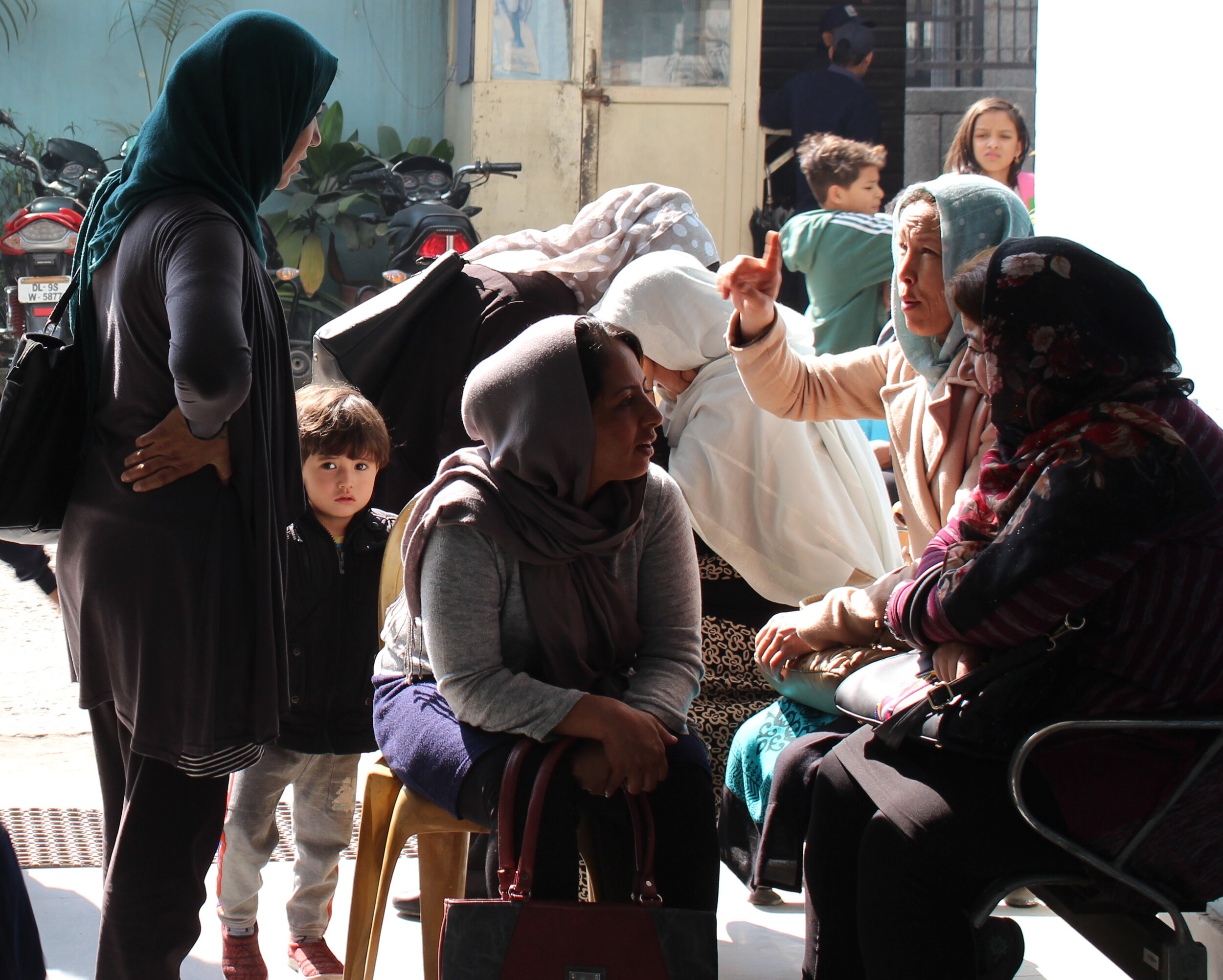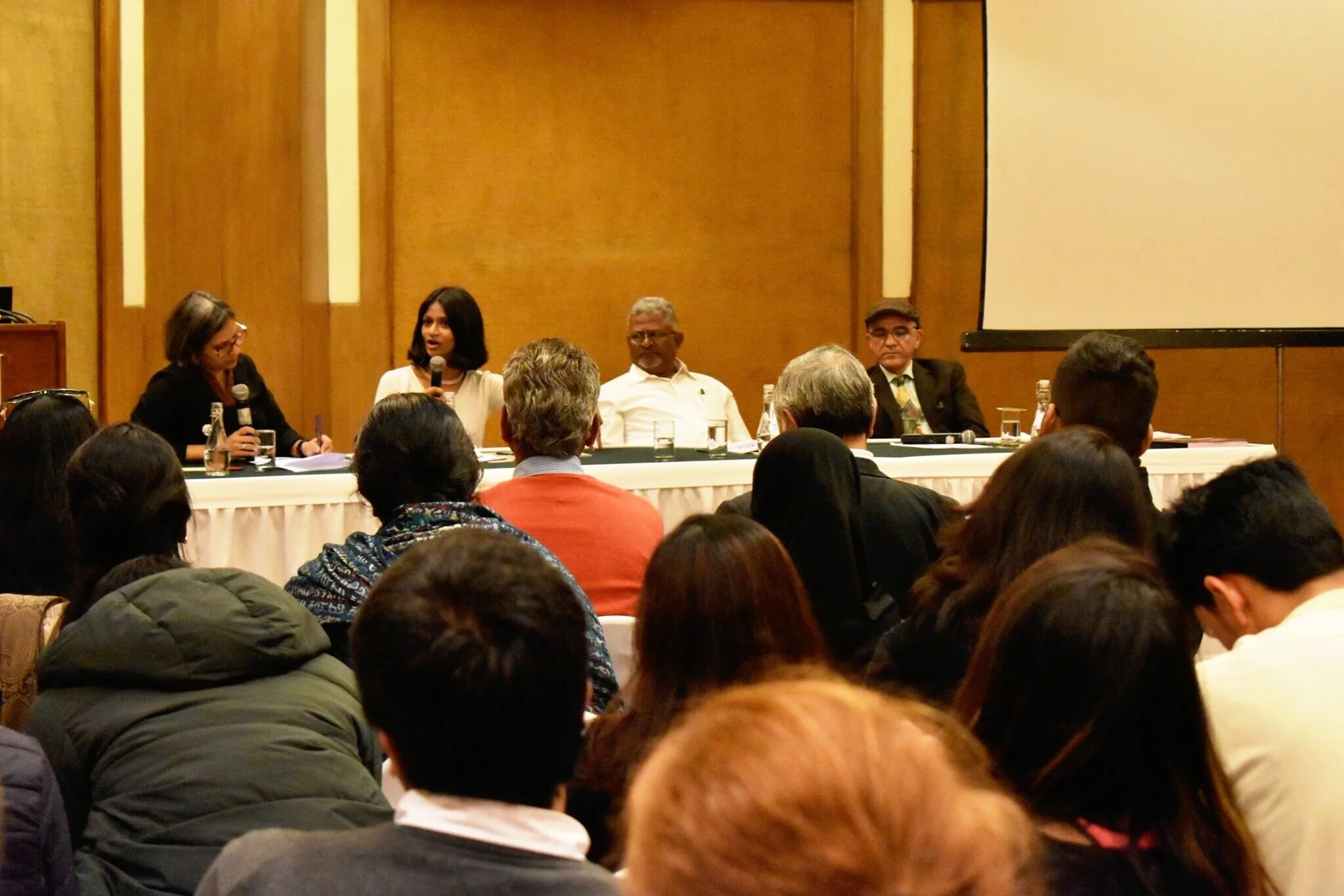
Legal Awareness
6000+ community members | 300+ barefoot advocates | 500+ stakeholders | 500+ law students
MAP believes that legal awareness is the first step towards empowerment and therefore makes it central to all its programmes. The organisation runs several targeted awareness and capacity building programmes to give the community and its stakeholders the tools to enforce their rights and take ownership over their protection.
Community-based Awareness
MAP conducts a number of community-based legal awareness programmes with the aim of providing timely information about their legal rights under applicable laws, equipping them to navigate complex legal systems to exercise these rights, and building capacities of local support structures. To this end, MAP uses both traditional as well as innovative media like apps, animation, illustrated material etc., to simplify laws and ensure effective communication. MAP prioritises working with women and children, and other marginalised groups (LGBTQI, those with disabilities, etc.) who are survivors of or at risk of SGBV.
MAP has undertaken legal awareness trainings on issues of SGBV, labour rights, entitlements and laws for redressal in case of violations, with over 1,100 members of target migrant and forcibly displaced communities.
MAP has also conducted sessions with forced migrants who are UNHCR’s Persons of Concern, on the agency’s systems and processes.
Targeted training of community focal points
MAP identifies members within displaced populations to act as “barefoot advocates” who then, operate as the first line of responders and lead the advocacy efforts for the community. The goal is to equip these individuals to become agents of change, and reduce their dependency on external service providers. MAP also engages with the Paralegal Volunteer networks managed by the state legal aid authorities to build their capacities to respond to the specific needs of the migrant communities.
Community Leaders are drawn from the communities with which MAP works. As part of our Talika Network, a network of 50 FPPs have been trained in basic legal rights and avenues for enforcements of these.
Registered under the NALSA Paralegal Volunteer Scheme (2009), MAP works with 36 paralegal volunteers who act as an effective bridge between the communities and legal services. These PLVs are trained annually on laws pertaining to gender-based violence, and are provided effective clinical experience through our mobile legal help desks.
As a crucial part of our Talika Network, ASHA and Anganwadi workers have been trained on health and reproductive rights, means by which to provide effective post-trauma support to survivors of SGBV, as well as on the need for sensitivity when dealing with different migrant and forcibly displaced migrant communities.
Stakeholders-Based Awareness
MAP undertakes capacity building activities with its secondary stakeholders, which include UN agencies, State authorities, policy makers, I/NGOs, and judicial stakeholders. These sessions focus on creating awareness about relevant laws and redressal avenues that can be used to safeguard rights of the community in India. Over the years, M.A.P has conducted workshops in partnership with the National Judicial Academy, Delhi State Legal Services Authority, NHRC, Delegation of the European Union to India, and the UNHCR.
We have also developed the Talika Network with over 100 service providers with who, we conduct workshops and training sessions for better coordination in grassroots responses to gender-based violence.
Legal Education
MAP has a strong focus on clinical legal education through which it familiarises law students and academicians with the practical challenges faced by displaced communities in achieving grassroots justice. With this aim, MAP has conducted lectures, symposiums, credit courses, seminars, and workshops, in collaboration with universities including, the National Law School of India University (Bengaluru), Symbiosis Law School (Noida), National Law University (Delhi), National University of Juridical Sciences (Kolkata), Gujarat National Law University, National Academy of Legal Studies and Research (Hyderabad), Jindal Global Law School (Sonipat), the American University in Cairo, and the Peter McMullin Centre on Statelessness at the University of Melbourne.








